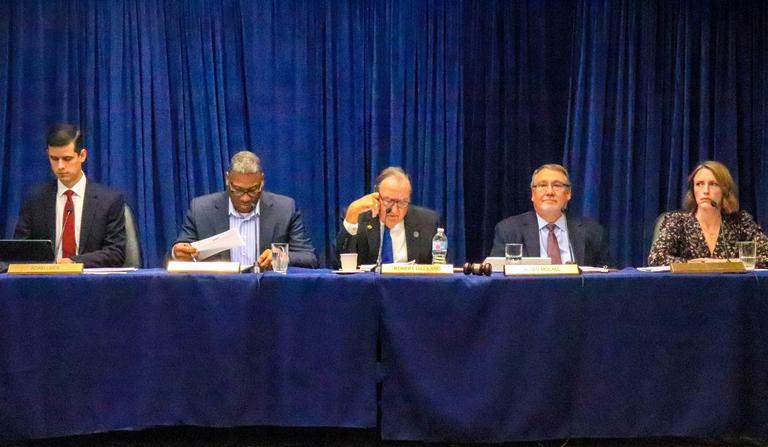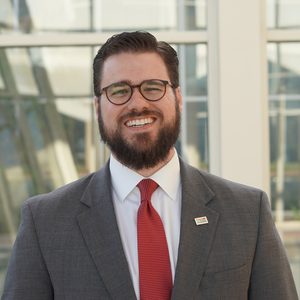
Criminal Justice
Ryan Haynie | January 8, 2021
What is the purpose of the Pardon and Parole Board?
Ryan Haynie
Yesterday, FWD.us released a report detailing the decline in commutations from the Oklahoma Pardon and Parole Board (PPB) from 2019 to 2020. According to the study, “the PPB’s significantly lower passage rate in 2020 is mostly driven by a steep decline in approvals for nonviolent offenses. Stage I passage rates for people applying to commute nonviolent sentences have declined from 74% to 35%.”
As I’ve learned more about the Pardon and Parole Board, I’ve found myself wondering what purpose, exactly, it is supposed to serve.
Oklahoma law states “[t]he Governor shall have power to grant, after conviction, reprieves, commutations, paroles and pardons for all offenses....” The Oklahoma Constitution (not exactly known for its brevity) establishes the Pardon and Parole Board and establishes its powers, authority, and responsibilities. The Board writes its own administrative rules.
Nowhere, however, is the purpose of the Board spelled out. Occasionally a statutory scheme will begin with the title of the act, then define the terms of the act, and it will occasionally spell out a purpose. Such a purpose is nonexistent in Oklahoma law, at least with respect to the Board.
This oversight has created a tension on the Board. If you asked the five members of the Board what they’re “supposed” to do, you would likely get five different answers. After speaking with a few Board members, I get the impression the answers (at least with respect to commutations) would fall into two broad categories: those who believe their job is to determine if the offender has been punished enough, and those who believe they are to determine if someone is eligible for commutation and thus to approve those who are eligible.
In the absence of a lawful purpose set out by statute, there are any number of possible purposes for the Board. It could be to act as a relief valve for the Department of Corrections (DOC). It could be to correct injustices that might have arisen at the trial court level. Or you could go with one of the theories held by any one of the Board members. In order to instill clarity and reduce arbitrariness, the legislature should statutorily lay out a framework for how the Board should be run. I propose they look to Texas for ideas.
In 2019, the Texas Board of Pardons and Paroles released a mission statement along with a set of values that govern how it operates. While its mission statement is pretty general, there are several “vision statements” that provide a framework Oklahoma can borrow. For instance, one goal is to maximize “the restoration of human potential while restraining the growth of prison and jail populations.” Another statement directs the Board what to consider and which tools to utilize in deciding on possible release.
Any such statement of purpose should acknowledge that Oklahoma incarcerates too many people for too long and should direct the Board to address that fact. If possible from a constitutional perspective, it should address Oklahoma’s status as it relates to the incarceration of women. Careful examination should be given to the grant of pardons and addressing the massive number of Oklahomans eligible for a pardon. But above all, it should focus on putting all Board members and staff on the same page.
Legislation sorting out the proper role of the Board would help those tasked with appointing members—the Governor, the Chief Justice of the Supreme Court, and the Presiding Judge of the Oklahoma Court of Criminal Appeals—to select candidates who can abide by those guidelines and who have ideas to further the mission of the Board. With the right guidance, the Pardon and Parole Board could be one of the most effective tools to push against harsh sentences and imprisoning low-level offenders. It is in a unique position to consider public safety, the facts of each case, and the behavior of the offender in order to make a just judgment. Let’s give them that guidance.

Ryan Haynie
Criminal Justice Reform Fellow
Ryan Haynie serves as the Criminal Justice Reform Fellow for the Oklahoma Council of Public Affairs. Prior to joining OCPA, he practiced law in Oklahoma City. His work included representing the criminally accused in state and federal courts. Ryan is active in the Federalist Society, serving as the Programming Director for the Oklahoma City Lawyer’s Chapter. He holds a B.B.A. from the University of Oklahoma and a J.D. from the University of Oklahoma College of Law. He and his wife, Jaclyn, live in Oklahoma City with their three children.